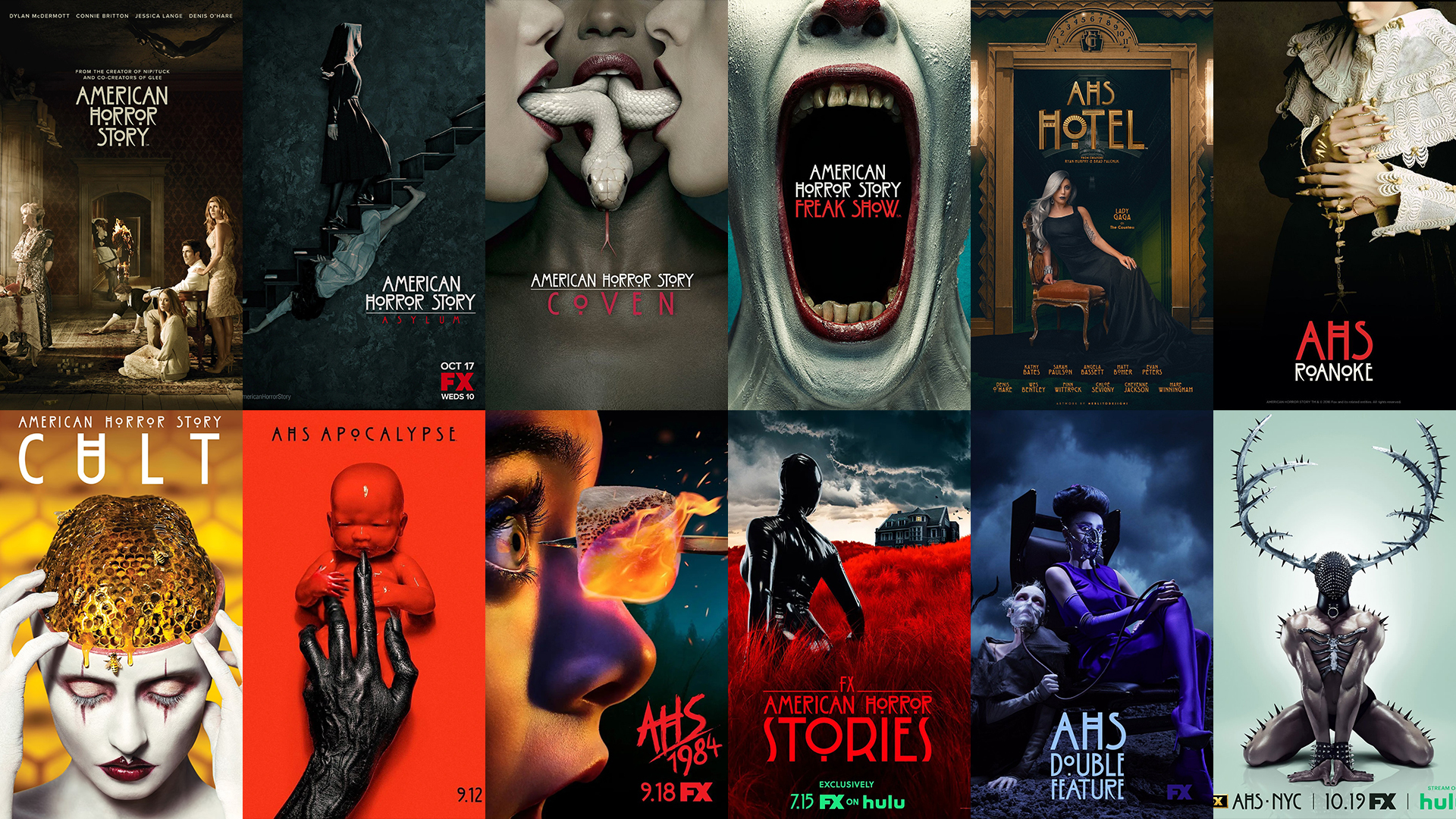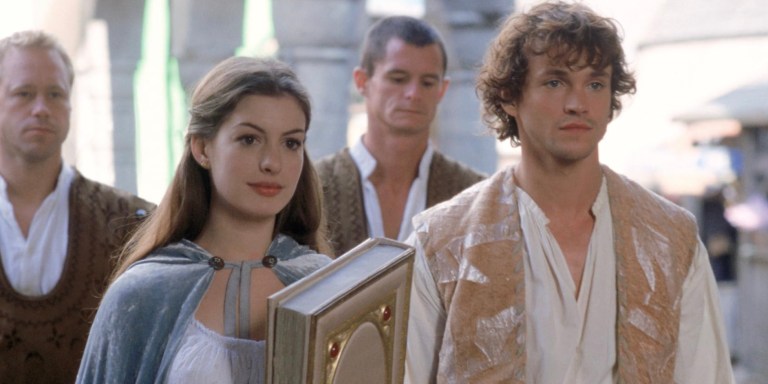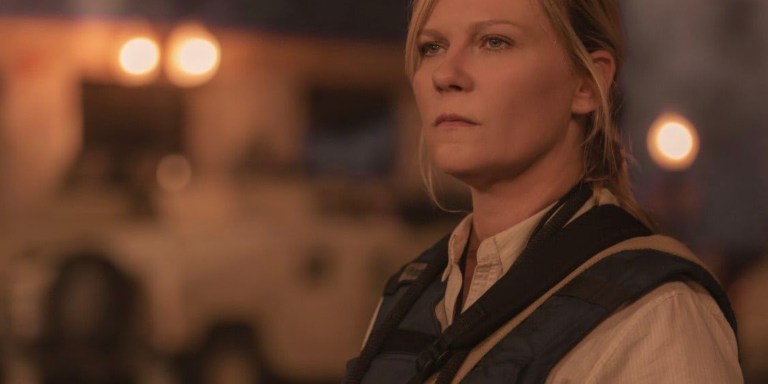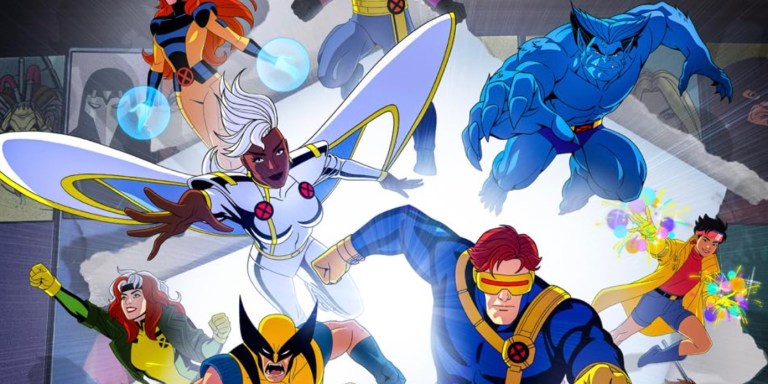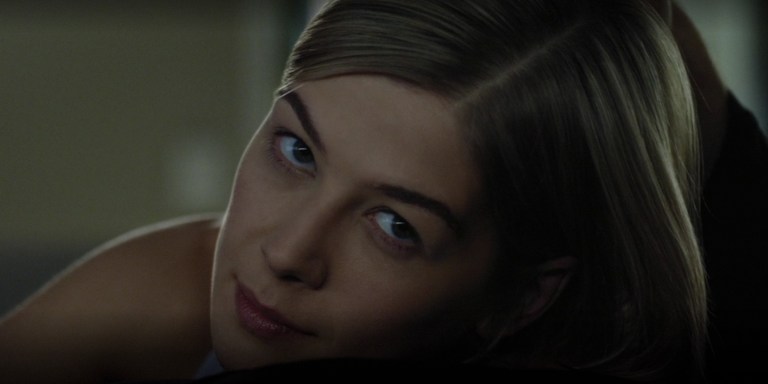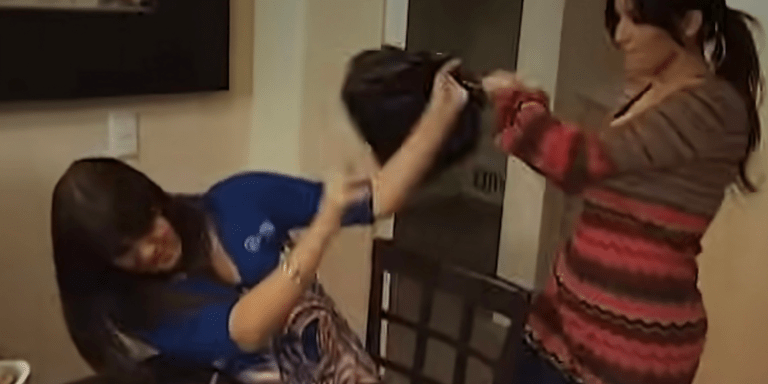With Halloween on the way and American Horror Story’s season eleven release, horror fans are in their element.
Riddled with jump scares, psychological twists, and characters that haunt our dreams long after the finale, it’s clear that AHS leaves a lasting impression on its audience. While its impact is due to several factors, including a killer cast (pun intended) and edgy horror themes, it’s also due to the immense amount of thought, planning, and research that goes into every season and episode. Many may not realize the amount AHS harkens back to American history, but each season is centered around numerous allusions to real-life killers, twisted stories, and haunting historical accounts.
If you’re prepared to be even more freaked by AHS’s unsettling storylines, read on to discover every historical event (so far) that American Horror Story is based on.
Season One: Murder House
Murder House references many true crime cases throughout its episodes and even connotes the “murder house” to well-known creepy houses in the United States.
Richard Speck
The beginning of episode two, “Home Invasion,” depicts a killer stabbing two nursing students to death which is directly referencing the 1966 killer, Richard Speck. Speck was a violent mass murderer that bound, strangled, and/or stabbed eight nursing students in Chicago.
Columbine Massacre
Episode Five, “Halloween, Part Two,” directly connotes Tate with Columbine’s shooter, Eric Harris, when they depict him asking one of the victims if she “believes in God” before killing her just as Harris did. High schoolers in the series also ask Tate why he “targeted jocks” which was a goal of Harris’ massacre.
Black Dahlia Murder
Episode Nine, “Spooky Little Girl,” vividly portrays the infamous 1947 L.A. “Black Dahlia murder” of Elizabeth Short. Both in the show and in real life, Short is discovered gruesomely bisected and mutilated by a mother and daughter that originally thought she was a mannequin at first glance. Even more eerie is that this haunting case has still never been solved.
“Murder House” House Inspiration
The house depicted throughout season one takes inspiration from many famous American murder houses such as 2475 Glendower Place, Amityville manor, and the Franklin house.
2475 Glendower Place was home to Harold Perelson, a cardiologist that murdered his wife, attempted to kill his daughter, and then committed suicide. We see similar ties to the house in AHS as it’s an evil doctor’s home and also is the base for many murder-suicides. In a similar vein, the Franklin house was also owned by a doctor known as Dr. George Hodel who was known for his violence and potential link to Elizabeth Short.
Amityville manor is infamous in the United States for ongoing supernatural happenings and horrors including the 1974 case of Ronald DeFeo murdering his parents and four siblings while they slept. Rumors say the house continued to be consumed by evil for years to come, not unlike the house we know in AHS.
Season Two: Asylum
While Asylum took on many of its own unique, creepy characters, many of them were based on real life monsters such as murderer Ed Gein, Nazi Officer Josef Mengele, and many more.
Betty & Barney Hill (Kit & Alma Walker)
On September 19th, 1961, interracial couple Betty and Barney Hill reported being abducted by an alien spacecraft, thus directly inspiring the characters of Kit and Alma Walker.
Elizabeth Jane Cochran (Lana Winters)
Beloved Sarah Paulson’s character, the journalist Lana Winters, is based on a real woman named Elizabeth Cochran that worked on an undercover investigative assignment for the New York World. In 1887, she claimed to be mentally insane in order to gain entry to the Women’s Lunatic Asylum on Blackwell’s Island. Similar to Winters, Cochran gained fame under the pen name “Nellie Bly” when she published her findings of patient brutality and negelect in a book titled Ten Days in a Madhouse.
Josef Mengele (Dr. Arden)
Twisted Dr. Arden from season two, was actually based on a real-life demon: SS Nazi Officer Josef Mengele. Mengele worked as a physician at Auschwitz and performed outrageous, deadly experiments on innocent people throughout the duration of the holocaust.
Ed Gein (Dr. Thredson)
Similar to Dr. Thredson’s human home decor derived from his victim’s bones and skin, real-life murderer, Ed Gein decorated his home with lampshades made from human skin and bowls made from skulls.
Briarcliff Manor Inspiration
All in all, asylums have the reputation to be a place where unsettling events take place. However, to take that a step further, the American Horror Story team decided to base the gruesome Briarcliff Manor on two eerie institutions where true horrors took place: Willowbrook State School and Rolling Hills Asylum. Known as some of the most haunted asylums in the United States, AHS pulls from their pasts including Willowbrook’s extreme patient neglect and harmful experiments and Rolling Hills’ long-lasting stories of spirits that still haunt the halls.
Season Three: Coven
Right off the bat, Coven’s premise harkens back to the Salem Witch Trials as it’s centered around the story of the last witches who remain. However, in addition to this historical background, season three also pulls inspiration from many authentic killers and creeps.
Delphine LaLaurie
It’s even more chilling to discover that the hated Delphine LaLaurie was a real 1800s New Orleans serial killer who bound and tortured a multitude of slaves in her lifetime.
Marie Laveau
In real life, Marie Laveau was a popular New Orleans herbalist and voodoo priestess commonly called the “Queen of Voodoo.”
Papa Legba
When it comes to authentic Haitian voodoo, Legba is one of the most important players of the loa as he is the first to be called so he can open the gates to the spirit world.
Axeman Killer
The sadistic axeman killer character portrayed in Coven is actually based on a real-life NOLA serial killer from the early 1900s that terrorized the community with death threats if houses didn’t play Jazz.
Season Four: Freak Show
Season four was comprised of a wide-ranging, unique cast of characters that were inspired by circus acts in famous shows throughout time. The theme itself is even derived from the hype that developed around circuses in the United States, producing notorious shows like Cirque de Soleil, P.T. Barnum’s “Greatest Show on Earth,” W.W. Cole’s Circus, and more.
Elsa Mars Inspiration
While Elsa Mars was not inspired by one specific person, her character was collectively based on the Weimer culture that sparked Cabaret performances. Between World War I and World War II, Weimer culture fostered a culture of openness through music, art, and film that attracted sex workers and those in the queer community.
Edward Mordrake Inspiration
While Edward Mordrake was not a real person, his two-faced character was brought to life from fiction writer, Charles Lotin Hildreth’s famous character written about in an article titled “The Wonders of Modern Science” published in the 1895 Boston Sunday Post.
John Wayne Gacy Jr. (Twisty the Clown)
Well known serial killer John Wayne Gacy Jr., worked as “Pogo the Clown” for many years while he was secretly tormenting and murdering 33 young boys between 1972 and 1978. After he was eventually caught, he earned the nickname “The Killer Clown,” similar to our terrifying Twisty.
Paul Bateson (Dandy Mott)
During the 1970s, a man named Paul Bateson was convicted of killing a queer man, reminiscent of Dandy Mott murdering his potential queer lover in AHS. Even sadder is that Bateson confessed to killing upwards of seven gay men during the 70s but was never sentenced for these crimes.
Chang & Eng (Bette & Dot)
In 1811, conjoined twins Chang and Eng prompted curiosity throughout the world when they were born in present-day Thailand. Known as the “original Siamese twins,” for they were born in what was previously known as the country of Siam, Chang and Eng directly prompted the creation of Bette and Dot.
Grady Stiles Jr. (Jimmy Darling)
Similar to our “freakshow” performer Jimmy, Grady Stiles Jr. reigned from a family of circus performers known as the “Lobster Family” for their congenital deformity commonly known as “Lobster Claw” syndrome. This syndrome causes ectrodactyly hands that seemingly resemble lobster claws. Even creepier is that real-life performer, Stiles, was a violent drunk that eventually murdered his daughter’s fiance in a fit of rage. In 1992, Stiles was murdered himself and he was so hated in the community that no one was even willing to be the pallbearer.
Madame Josephine Clofullia & Annie Jones (Ethel Darling)
Ethel, the “Bearded Lady,” was based on many famous bearded women throughout circus history such as Madame Josephine Clofullia in the 19th century and Barnum’s Annie Jones better known as the attraction: The Infant Esau.
Arthur Saxon (Dell Toledo)
Known as the “Iron Master,” famous strongman Arthur Saxon was born in 1878 and was highlighted as the only man to lift 371 lbs. with one arm. His awe-striking strength became a common trope in circus sideshows, thus inspiring the character of Dell Toledo.
Simon Metz (Pepper & Salty)
Commonly known by his stage name “Schiltzie,” Simon Metz was born with a condition known as microcephaly in which your head doesn’t grow at the same rate as your face. Throughout history, circus performers with this condition were deemed as “pinheads” similar to AHS characters Pepper and Salty.
Anna Haining Swan (Amazon Eve)
Inspiring AHS character, Amazon Eve, Anna Haining Swan stood at 7’11” and was labeled as the “Infant Giantess” when she was a child. After marrying the “Kentucky giant,” Martin Bates in 1871 who stood at 7’2”, they were touted by the W. W. Cole Circus as the “tallest couple on the globe.”
Stanislaus “Stanley” Berent (Paul)
Commonly known by his stage name “Sealo,” Stanislaus Berent was born with a condition called phocomelia that genetically stunted his arms. He called himself “Sealo” when he joined the circus as phocomelia literally translates to “seal arms” and later on his infamous circus story prompted the AHS character Paul.
Charles Stratton (Ma Petite)
More commonly referred to as “General Tom Thumb,” Stratton was P.T. Barnum’s first major circus attraction due to Stratton’s small stature. He toured with the circus for over four decades, joining Barnum’s sideshows at the mere age of five. Ma Petite’s character on AHS directly links back to Stratton.
Season Five: Hotel
American Horror Story’s fifth season which stars famous popstar Lady Gaga, pulls from many historical legends and authentic killers. Episode four, titled “Devil’s Night,” even features a scene where notorious murderers like Jeffrey Dahmer, Eileen Wuornos, Richard Ramirez, John Wayne Gacy, and the Zodiac Killer all gather to share dinner.
Hotel Cortez Inspiration
One of the most famous haunted hotels in American history is Los Angeles’ Cecil Hotel where many have met their fate and are rumored to still haunt the halls. In addition to Cecil Hotel, Hotel Cortez also paralleled renowned serial killer H. H. Homes’ “Murder Castle” where he tortured and killed over 25 innocent people in his lifetime.
H. H. Holmes (James March)
Commonly referred to as America’s first serial killer, H. H. Holmes confessed to 27 murders in his lifetime, however, researchers point to him committing over 200 tragic killings. One of the eeriest parts of his case was when they discovered that the house he had built included trapdoors, soundproof rooms, gas jets for asphyxiation, and his very own crematorium. This house of horrors was later deemed Holmes’ “Murder Castle,” and his notorious story led to inspire the character of James March.
The Countess Inspiration
The Countess’ character drew inspiration from real-life Countess, Elizabeth Bathory who was a Hungarian noblewoman during 1560-1614. Vampiric legends tell the tale that Elizabeth murdered many young virgins in her years to bathe in their blood in order to maintain her youthful beauty. When she was finally arrested, a number of imprisoned and dying girls were discovered on her property, and it’s noted that she tortured and/or murdered over 600 women in her lifetime.
Season Six: Roanoke
While other seasons contain various moving parts or pieces that are grounded in true people or tales, the entire sixth season of American Horror Story is rooted in the true story of the missing Roanoke colony.
In 1587, Captain John White established a settlement at Roanoke Island in present-day North Carolina with over 150 colonists before shortly returning to England to gather more supplies. Four years later, upon his return, he found the settlement in complete ruins with words carved on trees alluding to a friendly Native American tribe down the coast. Rumors circled of a massacre taking place, but the colonists were never found.
Furthermore, the AHS team pulled specific images regarding nature from authentic phenomena such as the ‘breathing earth’ seen by Shelby when she’s walking through the woods, similar to the clip below:
Season Seven: Cult
“Cult,” the seventh season of AHS is completely embedded in topical historical events such as Trump’s election and the paranoia and fear felt by many communities after the 2016 election. Through the exploration of mental health concerns such as anxiety, phobias, and more, the AHS team aimed to explore the issue of propaganda, fake news, and most importantly, how powerful figures in the United States use fear to maintain status and relevancy.
Kai Anderson Inspiration
The character of Kai Anderson is compiled by collaging aspects of a multitude of notorious cults and cult leaders throughout history. For example, Anderson refers to cult leader Jim Jones as the “Kanye of cult leaders” for convincing his 900 followers to commit suicide in Jonestown by drinking kool-aid poisoned with cyanide. Another example of Anderson’s culty collaging is when he mirrors the Heaven’s Gate cult leader Marshall Applegate in a video uploaded to the internet after Applegate convinced 39 followers to commit suicide in 1997.
Lena Dunham Inspiration
Dunham’s character corresponds with Valerie Solanas, the woman who attempted to murder Andy Warhol as a part of her overall belief that women should rid the world of men. Solanas wrote her famous SCUM Manifesto in 1967, a year prior to shooting Warhol, which outlined the reasons why men are plaguing society and should be killed off.
Season Eight: Apocalypse
Season eight of American Horror Story was one that was less grounded in historical events but moreso rooted in common American fears for the future such as a virus turning us into mutant zombies or more realistically, nuclear fallout.
Due to the United States Cold War with the Soviet Union, North Korean nuclear warheads and threats, and other terrifying factors that continue to loom over America, Apocalypse imagines a reality for a communal American fear: nuclear war.
Some also say that teaser trailers for the season, like the one shown below, may be based on Shirley Jackson’s short story “The Lottery.” The story places the audience in a dystopian future where an annual lottery is held to see which person from a small village will be stoned to death.
Survive. This is your chance. https://t.co/c0IQHhIMtG#AHSApocalypse #AHSFX pic.twitter.com/twrkm9Bxb2
— AmericanHorrorStory (@AHSFX) August 22, 2018
Season Nine: 1984
American Horror Story does an incredible job at placing us in the 80’s with their ninth season, 1984. With references from things as niche as the Wendy’s “Where’s the beef?” commercial to things as popular as Friday the 13th, this season grounds itself in a plethora of pop culture chords that scream: we’re in 1984!
However, the main historical thread that weaves its way through this season is its storyline and characters being centered around the notorious serial killer, Richard Ramirez. In AHS and in real life, Ramirez was labeled “The Night Stalker” and was considered a follower of Satan. Ramirez often targeted older women and by the time he was caught, he was convicted of 13 murders, even though many believe he committed more. The comparison between the events of this season and the authentic story is strikingly similar, not to mention Zach Villa’s resemblance to Ramirez hits a little too close for comfort.
Season Ten: Double Feature
While a double feature that includes vampires may not seem based in fact, much of season ten is actually inspired by the “Cape Cod Vampire,” Antone Charles “Tony” Costa. Costa was convicted of killing two women in 1969 although he was suspected to have murdered upwards of eight women. He was known for being an avid drug user that dismembered each victim after they were killed and left bitemarks on their neck postmortem, granting him his vampiric nickname.
The likeness between the stories begins when protagonist Harry Gardner mentions a murder in Truro where Costa’s killings took place. Another glaring similarity is between the “black pills” residents use to turn into blood-suckers and Costa’s frequent drug use. Lastly, with Costa being likened to a vampire and the season being based around blood-sucking monsters, it’s easy to see where the AHS team got their inspiration.
Season Eleven: NYC
Now it’s time for the mysterious season eleven theme to fully reveal itself so we can all discover what historical mind-fucks and eerie imagery American Horror Story has in store this October with “New York City.”
Sources:
- https://www.britannica.com/biography/Richard-Speck
- https://screenrant.com/american-horror-story-murder-house-true-story/
- https://www.fbi.gov/history/famous-cases/black-dahlia
- https://www.telltalesonline.com/21911/american-horror-story-real-life/
- https://screenrant.com/american-horror-story-asylum-lana-winters-character-inspiration/
- https://www.history.com/news/first-alien-abduction-account-barney-betty-hill
- http://auschwitz.dk/Mengele.htm
- https://www.britannica.com/biography/Ed-Gein
- https://screenrant.com/american-horror-story-asylum-season-2-true-story/#:~:text=The%20on%2Dscreen%20AHS%20season,one%2C%20Betty%20and%20Barney%20Hill.&text=Betty%20and%20Barney%20Hill%20were,spacecraft%20on%20September%2019th%2C%201961
- https://wechoiceblogger.com/american-horror-story-asylum-the-true-story-that-inspired-season-2/
- https://www.looper.com/429969/is-the-asylum-from-american-horror-story-a-real-place/
- https://www.nytimes.com/2020/02/21/nyregion/willowbrook-state-school-staten-island.html
- https://www.refinery29.com/en-us/2017/09/170971/american-horror-story-seasons-list-themes#slide-1
- https://www.crimemuseum.org/crime-library/serial-killers/delphine-lalaurie/
- https://www.britannica.com/biography/Marie-Laveau
- https://www.legendsofamerica.com/la-axeman/
- https://screenrant.com/american-horror-story-coven-delphine-lalaurie-true-story/#:~:text=American%20Horror%20Story’s%20season%203,woman%20of%20the%20same%20name
- https://www.popsugar.com/entertainment/American-Horror-Story-Coven-Real-People-32533866
- https://www.digitalspy.com/tv/ustv/a808175/watch-real-life-video-inspired-american-horror-story-season-6-moving-ground/
- https://screenrant.com/american-horror-story-season-6-roanoke-true-story/#:~:text=American%20Horror%20Story%20season%206,a%20colony%20on%20Roanoke%20Island
- https://time.com/4495614/america-horror-story-season-six-true-story/
- https://screenrant.com/american-horror-story-true-story-season-8/#:~:text=real%2Dlife%20possibilities.-,American%20Horror%20Story%3A%20Apocalypse%2C%20the%20show%27s%20eighth%20season%2C%20explored,life%20fears%20of%20nuclear%20war
- https://www.wmagazine.com/story/sarah-paulsons-new-american-horror-story-shirley-jackson-the-lottery
- https://screenrant.com/american-horror-story-freak-show-characters-true-story/
- https://screenrant.com/american-horror-story-freak-show-season-4-true-story/#:~:text=Although%20the%20character%20angered%20clowns,moniker%20%E2%80%9CThe%20Killer%20Clown%E2%80%9D
- https://murderpedia.org/male.B/b/bateson-paul.htm
- https://www.britannica.com/biography/Chang-and-Eng
- https://www.britannica.com/biography/John-Wayne-Gacy
- https://www.huffpost.com/entry/lobster-boy_n_5340346
- https://allthatsinteresting.com/annie-jones-bearded-lady
- https://www.oldtimestrongman.com/arthur-saxon/
- https://www.findagrave.com/memorial/14093667/simon-metz
- http://www.biographi.ca/en/bio/swan_anna_haining_11E.html
- https://www.thehumanmarvels.com/stanley-berent-sealo-the-seal-boy/
- https://www.britannica.com/biography/Charles-Stratton
- https://allthatsinteresting.com/edward-mordrake
- https://allthatsinteresting.com/cecil-hotel-los-angeles
- https://screenrant.com/american-horror-story-hotel-true-story-inspired-season-5/
- https://www.britannica.com/biography/Elizabeth-Bathory
- https://www.britannica.com/biography/H-H-Holmes
- https://screenrant.com/american-horror-story-season-7-true-crimes-important/
- https://screenrant.com/american-horror-season-7-true-story-explained/#:~:text=AHS%3A%20Cult%20was%20inspired%20by,groups%20felt%20after%20the%20election
- https://www.britannica.com/event/Jonestown
- https://www.history.com/this-day-in-history/heavens-gate-cult-members-found-dead
- https://www.nytimes.com/2020/06/26/obituaries/valerie-solanas-overlooked.html
- https://www.thrillist.com/entertainment/nation/ahs-1984-easter-eggs-references-1980s-american-horror-story
- https://screenrant.com/american-horror-story-1984-true-story-explained/#:~:text=American%20Horror%20Story%201984%3A%20The%20True%20Story%20That%20Inspired%20Season%209,-By%20Brynne%20Ramella&text=American%20Horror%20Story%3A%201984%20takes,as%20%22The%20Night%20Stalker.%22
- https://www.distractify.com/p/is-ahs-1984-a-true-story
- https://screenrant.com/american-horror-story-red-tide-true-story-explained/
- https://www.digitalspy.com/tv/ustv/a37440625/american-horror-story-season-10-true-story-real-life/
- https://www.distractify.com/p/cape-cod-vampire-ahs#:~:text=Season%2010%20of%20%27AHS%27%20Is,of%20the%20Cape%20Cod%20Vampire&text=The%20truth%20is%20often%20stranger,anthology%20series%20American%20Horror%20Story
- https://allthatsinteresting.com/tony-costa
